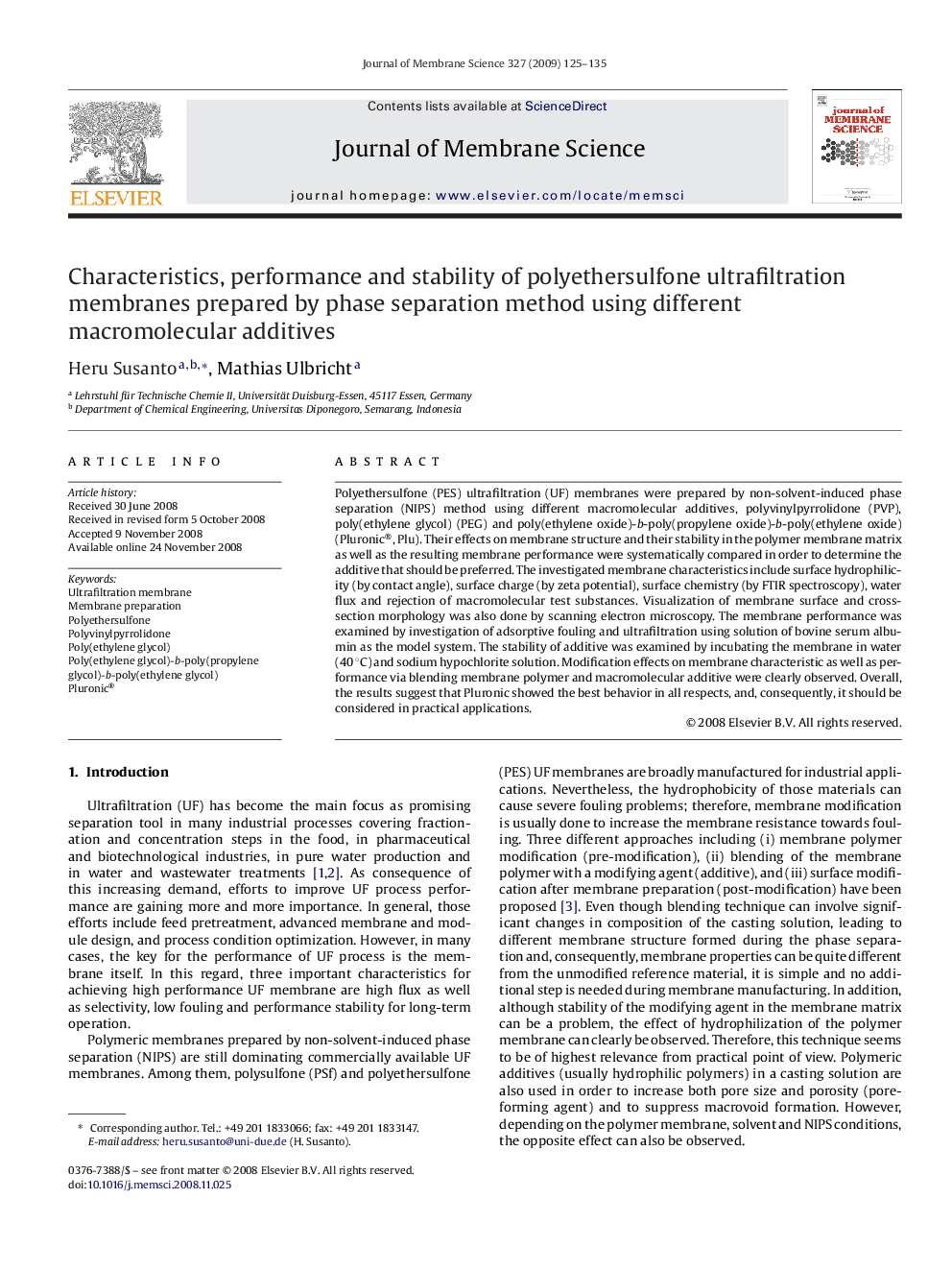| کد مقاله | کد نشریه | سال انتشار | مقاله انگلیسی | نسخه تمام متن |
|---|---|---|---|---|
| 637618 | 1456151 | 2009 | 11 صفحه PDF | دانلود رایگان |

Polyethersulfone (PES) ultrafiltration (UF) membranes were prepared by non-solvent-induced phase separation (NIPS) method using different macromolecular additives, polyvinylpyrrolidone (PVP), poly(ethylene glycol) (PEG) and poly(ethylene oxide)-b-poly(propylene oxide)-b-poly(ethylene oxide) (Pluronic®, Plu). Their effects on membrane structure and their stability in the polymer membrane matrix as well as the resulting membrane performance were systematically compared in order to determine the additive that should be preferred. The investigated membrane characteristics include surface hydrophilicity (by contact angle), surface charge (by zeta potential), surface chemistry (by FTIR spectroscopy), water flux and rejection of macromolecular test substances. Visualization of membrane surface and cross-section morphology was also done by scanning electron microscopy. The membrane performance was examined by investigation of adsorptive fouling and ultrafiltration using solution of bovine serum albumin as the model system. The stability of additive was examined by incubating the membrane in water (40 °C) and sodium hypochlorite solution. Modification effects on membrane characteristic as well as performance via blending membrane polymer and macromolecular additive were clearly observed. Overall, the results suggest that Pluronic showed the best behavior in all respects, and, consequently, it should be considered in practical applications.
Journal: Journal of Membrane Science - Volume 327, Issues 1–2, 5 February 2009, Pages 125–135